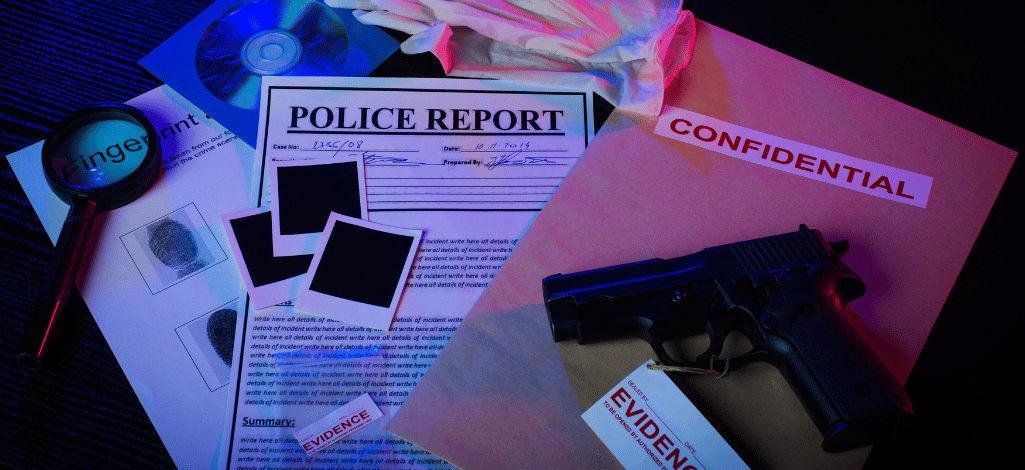INTRODUCTION
In R v Wilkinson, the Court of Appeal upheld the appellant’s conviction on drug possession charges on the basis that a search of the appellant’s backpack, which he had dropped when fleeing from an unmarked police vehicle, was not done as an incident to his arrest but rather because the property had been abandoned.
In Minchin v Movsessian, the BC Supreme Court dismissed a plaintiff’s civil claim that a police officer had been grossly negligent when the plaintiff had been errantly shot during a high-risk vehicle takedown when the defendant police officer had mistaken him for the police target.
R v WILKINSON, 2023 BCCA 3
The BC Supreme Court has recently considered the issue of arbitrary detentions and unreasonable search and seizure.
The appellant was convicted at trial on two counts of possession of heroin/fentanyl and cocaine for the purpose of trafficking and one count of possession of methamphetamine. The appellant and another individual ran away from plainclothes police officers who were on patrol in an unmarked vehicle. While the appellant was running from the police, he became separated from his backpack, which was searched by police and determined to have contained drugs and large sums of cash. The appellant was then arrested and advised of his right to counsel.
The trial judge determined the appellant had been arbitrarily detained. The trial judge accepted evidence that the arrest took place in a high-crime area. The trial judge reasoned the appellant had no way to know the unmarked vehicle belonged to police: running away from an unmarked vehicle and plainclothes individuals at night, in a high-crime area, did not support the level of suspicion necessary to justify an investigative detention.
However, because the appellant had dropped his backpack, therefore abandoning it, the trial judge concluded there had been no violation of the appellant’s s. 8 Charter right against unreasonable search or seizure.
The trial court concluded the evidence was admissible because the police’s arbitrary detention of the appellant lasted only a few minutes and without a pattern of abuse or extreme measures, the infringement on the appellant’s rights were relatively minor. This minor infringement, coupled with the impact excluding the evidence would have on the crown’s case, and society’s interest in having the case adjudicated on its merits, favoured including the evidence.
On appeal, the Court of Appeal overturned the trial court’s finding that the appellant had been arbitrarily detained. The Court of Appeal held the trial judge failed to consider the entire circumstances of the appellant’s arrest. The Court of Appeal found that, notwithstanding a potentially innocent explanation for the appellant’s flight from police, the fact he ran supported an inference of a guilty conscience. This inference supported an objectively reasonable suspicion, providing a basis for investigative detention.
Having found no palpable or overriding errors, the Court of Appeal declined to overturn the trial court’s factual determination that the appellant had abandoned his backpack. Because it had been abandoned, the Court of Appeal held it was searched on that basis, and not incident to the investigative detention.
The Court of Appeal next reviewed whether the appellant’s s. 10 Charter right had been infringed by the police failing to promptly inform him of his right to seek counsel prior to questioning. The Court of Appeal noted the appellant had been informed of this right, though he was asked why he ran prior to receiving this instruction. On that basis, the Court of Appeal found that any evidence obtained prior to the appellant being informed of his Charter right to counsel was inadmissible. However, the evidence from the backpack, having been obtained because the backpack was abandoned rather than as an incident to arrest, was unaffected by any potential breach of the appellant’s s. 10 Charter right and had been properly admitted into evidence at trial.
Given the above, the Court of Appeal dismissed the appeal and upheld the appellant’s conviction.
MINCHIN v MOVSESSIAN, 2023 BCSC 144
In Minchin, the BC Supreme Court examined the standard of care applicable to police who injure bystanders while acting in the course of their duty.
The plaintiff, Michael Minchin, was injured after being shot by the defendant police officer during the course of a high-risk vehicle takedown. The plaintiff was a passenger in the rear seat of a vehicle the police had been following but was not the person whom the police were after.
At the time the plaintiff was injured, he had been mistaken for another individual who the police understood to be the subject of numerous warrants for violent, gang-related offences. The defendant police officer shot the plaintiff when he had made a sudden movement while in the backseat of a vehicle the police had intercepted at night. Because of the way the plaintiff had moved, he had exited a spotlight’s beam in a way that his hands were no longer visible, prompting the defendant police officer to shoot him in the chest area.
Section 21 of the Police Act provides that police officers, like the defendant constable, are only personally liable if their conduct amounts to “gross negligence”. BC courts have held that the standard of care required of police performing their duties is assessed by “whether his or her conduct, when examined from the viewpoint of a police officer possessed of reasonable skill and experience, was reasonable in the particular circumstances”: Bergen v Guliker, 2015 BCCA 383 at para 106. The Police Act’s gross negligence requirement requires a plaintiff to prove the defendant’s conduct was a “marked departure” from that standard.
The standard of care expressed in Guliker tracks with earlier Canadian jurisprudence, including of the Supreme Court of Canada, which recognizes the standard required of police is not one of hindsight or perfection, and accounts for circumstances that may include urgency or deficiencies of information: Hill v Hamilton-Wentworth Regional Police Services Board, 2007 SCC 41 at para 73.
In evaluating the applicable standard of care in the circumstances, the Court heard expert evidence from individuals who train police officers on use of force. The expert witnesses provided evidence about the training the defendant received, and in particular the “action versus reaction cycle”, which identifies that it takes significantly less time to act than it does to react. Because of the asymmetry between action and reaction, the Court heard evidence that police are required to continually observe and assess multiple factors, which may be changing quickly, including focusing continually on seeing and controlling the subject’s use of their hands, which are seen as “delivery systems” for weapons.
The Court rejected the plaintiff’s submissions that the standard of care requires police in the defendant’s position to correctly identify their target before shooting, finding that it “would be virtually impossible for an officer such as Cst. Movsessian who did not know Mr. Foster [the intended target], to arrest him in circumstances when there is any risk that the person would not cooperate with being asked for their identity”: para 62.
After assessing both the plaintiff and defendant’s credibility and reliability, the Court determined that the defendant officer had subjectively believed the person in the rear passenger seat was his intended target, and that he was reaching for a gun when that person’s hands were no longer visible and he appeared to be arching his back and “wedging up”: para 90.
The Court rejected the plaintiff’s submission that the defendant was required to prove his use of force was reasonable, instead finding the plaintiff was required to prove each element of his claim and that the plaintiff failed to prove the defendant’s use of force was unreasonable in the circumstances.
Given the defendant’s actions did not breach the standard of care, the Court found it unnecessary to determine whether his actions had deviated sufficiently from that standard as to constitute “gross negligence”.
CONCLUSION
In Wilkinson, no other Charter breaches affected the search of the backpack as the officer specifically testified the search was on the basis that it was abandoned. In Minchin, the fact that the officer could not see the plaintiff’s hands during the takedown was vital in finding that the standard of care was met.
These decisions confirm that every action – from a suspect abandoning their bag in a chase to a sudden backseat movement during a vehicle takedown – can be crucial to the proper determination of a case on its merits and officers must be diligent to document every event.
If your require additional information or further assistance, please contact David McKnight and Naomi Krueger.




